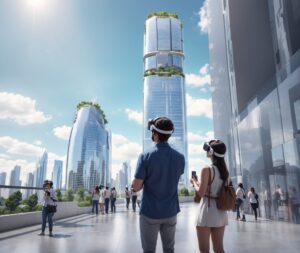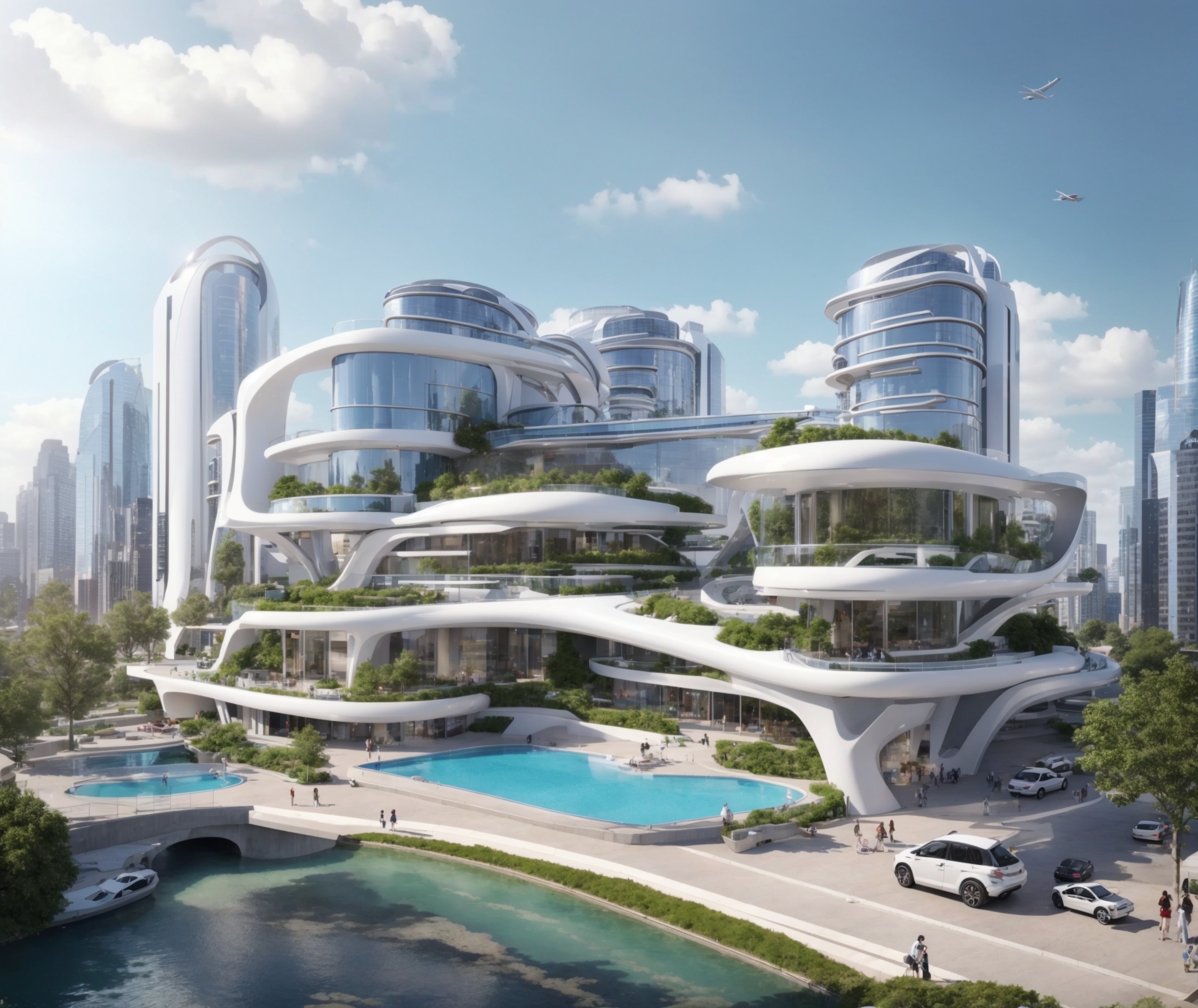In a world that’s constantly evolving, the real estate industry is no exception. As we step into 2024, the landscape of real estate is poised for significant changes. From technological advancements to shifting buyer preferences, the coming year promises to reshape how we buy, sell, and interact with properties. In this article, we’ll explore the anticipated trends and developments that will define the world of real estate in 2024.

- Embracing Virtual Reality (VR) in Property Tours
The traditional method of physically visiting properties for sale is undergoing a transformation. With the integration of virtual reality, potential buyers can now take immersive virtual property tours from the comfort of their homes. This technology allows them to explore every nook and cranny, giving a realistic sense of the property’s layout and ambience.

- Sustainable and Smart Homes on the Rise
As environmental concerns continue to take center stage, the real estate industry is responding with sustainable and smart home solutions. In 2024, more properties will incorporate energy-efficient features, such as solar panels and smart thermostats, appealing to eco-conscious buyers.

- Decentralization of Urban Centers
The events of the past years have accelerated the decentralization trend. As remote work becomes the norm, people are moving away from crowded urban centers in search of spacious suburban or rural properties. This shift is expected to continue in 2024, reshaping property demand and prices.

- Rise of Co-living and Co-working Spaces
With the rise of the gig economy and remote work, co-living and co-working spaces are gaining traction. These shared spaces offer flexibility and cost-efficiency, appealing to young professionals and digital nomads who value both work and social connections.

- Blockchain for Secure Transactions
Blockchain technology is making waves in real estate transactions. Its ability to provide secure, transparent, and tamper-proof records is expected to simplify and expedite property transactions, reducing the need for intermediaries and paperwork.

- Personalized Real Estate Services
Artificial intelligence and big data are enabling real estate agents to provide highly personalized services. By analyzing user preferences and behavior, agents can curate property recommendations that closely align with the buyer’s needs.

- The Influence of Generation Z
As the oldest members of Generation Z enter the housing market, their preferences will shape the industry. This tech-savvy generation values sustainability, technology integration, and community, influencing the design and features of future properties.

- Flexibility in Financing Options
Traditional mortgage models are facing competition from innovative financing options. In 2024, we can expect to see an increase in shared ownership, rent-to-own, and other flexible financing models catering to a diverse range of buyers.

- 3D-Printed Homes
The construction industry is undergoing a revolution with 3D printing technology. This trend is likely to extend to real estate, where 3D-printed homes can be constructed quickly and cost-effectively, addressing housing shortages in various regions.

- Data Privacy and Security Concerns
As more transactions and data move online, data privacy and security concerns become paramount. Real estate professionals will need to prioritize robust cybersecurity measures to protect sensitive client information.

- Urban Farming Integration
The concept of urban farming is making its way into urban planning and property design. In 2024, we might witness more properties with integrated green spaces and even small-scale urban farms, contributing to sustainability and localized food production.

- Redefining Luxury Living
The definition of luxury in real estate is evolving beyond opulence. Buyers are now seeking properties that offer wellness amenities, advanced health features, and sustainable living, redefining what it means to live lavishly.

- AI-Powered Property Management
Property management is becoming more efficient with AI-powered tools. Predictive maintenance, automated tenant interactions, and energy optimization are just a few ways AI is reshaping property management.

- Regulatory Changes and Digital Transactions
2024 is likely to see more governments adapting regulations to accommodate digital transactions fully. E-signatures and online notarization will become more widely accepted, streamlining the buying and selling processes.

- The Human Touch Remains Essential
Amidst all the technological advancements, the human touch remains irreplaceable. Real estate transactions are emotionally charged, and buyers and sellers will continue to rely on experienced agents for guidance and reassurance.
Conclusion
In conclusion, the world of real estate in 2024 is poised for transformative changes. From virtual reality property tours to sustainable and smart homes, the industry is adapting to cater to evolving buyer preferences and technological advancements. While innovations like blockchain and AI are shaping the transactional landscape, the essence of real estate—human connection—remains at the heart of every successful deal.
FAQs
Q: How will virtual reality impact property buying? A: Virtual reality will revolutionize property buying by offering immersive virtual tours, enhancing the buyer’s experience.
Q: What is the significance of blockchain in real estate? A: Blockchain ensures secure and transparent property transactions, reducing the need for intermediaries and paperwork.
Q: How are co-living spaces changing the housing market? A: Co-living spaces are catering to the needs of young professionals and digital nomads, offering flexible and cost-efficient living options.
Q: What role will AI play in property management? A: AI will streamline property management through predictive maintenance, automated interactions, and energy optimization.
Q: How is luxury living being redefined in real estate? A: Luxury living now includes wellness amenities, sustainability features, and advanced health technologies.





